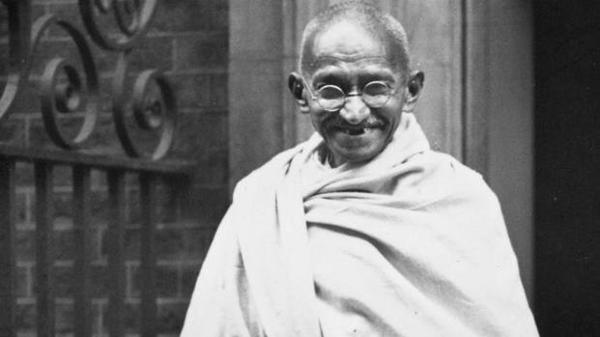Jerusalem: A short handwritten letter by Mahatma Gandhi 80 years ago on the same day the World War II broke out, wishing the ‘afflicted (Jewish) people’ an ‘era of peace’, has been unveiled for the first time by the National Library of Israel.
Mahatma Gandhi wrote the letter to Head of the Bombay Zionist Association (BZA) AE Shohet, who was trying to enlist support of Indian leaders in favour of the movement to establish a national home for the Jewish people.
Written on the occasion of Rosh Hashana (Jewish New Year), September 1, 1939, the letter also marked the beginning of the World War II when Germany invaded Poland, setting the stage for the despicable atrocities of the Holocaust.
“The timing of the greeting reflects the extent to which Nazi persecution of Jews was of concern to global citizenry at the time. In hindsight, it also presents a chilling portent of the horrors to come,” said Zach Rothbart, in-charge of communications at National Library of Israel (NLI).
Mahatma’s greetings came to light as part of a major initiative launched by the NLI, with support from the ‘Leir Foundation’, to review and describe millions of items in its archival collections, including personal papers, photographs and documents from many of the 20th century’s most prominent cultural figures. The letter, for the first time, has been posted online by the NLI.
“Dear Shohet, You have my good wishes for your new year. How I wish the New Year may mean an era of peace for your afflicted people. Yours sincerely, M K Gandhi,” the letter reads.
Shohet was an Indian Jew from the Baghdadi community in Bombay. He headed BZA and served as the editor of ‘The Jewish Advocate’.
A firm believer in the Zionist cause, the Indian-Jewish community leader saw the movement as the only way to unify the diverse Jewish population of Bombay, which included the long-established wealthy Baghdadi Jewish community, the Bene Israel Indian Jewish community and the local European Jewish community.
Perturbed by Mahatma Gandhi’s perceived silence on the question of persecution of the German Jewry and the Indian National Congress’ neutral attitude on the matter, Shohet had been pursuing Indian leader to win him over on his side.
